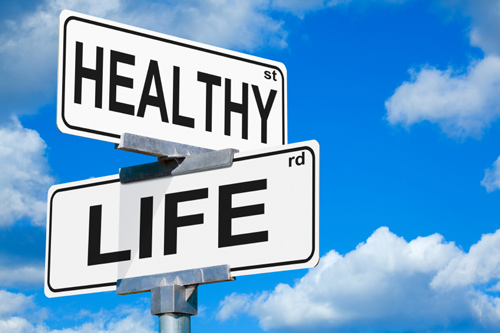
person that Jump to: Risk factors Medications Medication pros Medication Cons If your teen is struggling with depression, you might be wondering if medication might help. Antidepressant medications, while generally safe, can have unpleasant side effects, and recent warnings about teens and antidepressant use are worrisome. On the flip side, they can also dramatically improve your mood. For these reasons, it s important to weigh the pros and cons of medication use. Overview Teen depression is a serious mental health condition that causes persistent feelings of sadness and loss of interest in activities. It affects how a teen thinks and behaves and can negatively impact school, family, and social functioning. According to the National Institute of Mental Health, approximately 3 million American adolescents, age 12 to 17, had at least one major depressive episode in 2015. 1 This number represented 12.5% of the adolescent population. Article continues below Do you feel depressed? Take our 2-minute Depression quiz to see if you may benefit from further diagnosis and treatment. Take Depression Quiz Risk Factors Research shows the strongest risk factors for depression in adolescence are a family history of depression and exposure to psychosocial stress. Other factors to consider include developmental factors, hormonal changes, and psychosocial adversity. 2 Other factors than can trigger teen depression include: Bullying and other peer issues Academic pressure or problems Chronic disease Alcohol or drug use Family discord Sleep deprivation Confusion about sexual orientation Other mental health disorders Learning disabilities and ADHD Low self-esteem History of violence (witness to or victim of) Common antidepressant medications There are several different categories of antidepressant medications. Each works to change the way the brain processes the neurotransmitters that affect moods and emotions. Serotonin, dopamine, and norepinephrine are a few of the brain chemicals that regulate our emotions and energy levels. Selective serotonin reuptake inhibitors (SSRIs): When taken as directed and under close medical supervision, SSRIs can help teens manage symptoms of depression with very few side effects. SSRIs elevate mood by raising serotonin. Monoamine oxidase inhibitors (MAOIs): These were some of the first antidepressants developed. MAOIs increase serotonin by blocking the enzyme that breaks it down. MAOIs are not prescribed as frequently because they can have serious side effects and drug or food interactions. Tricyclic antidepressants (TCAs): These antidepressants are not commonly prescribed for teens or younger patients due to side effects unless the patient is unresponsive to SSRIs. Atypical antidepressants: These antidepressants (including Wellbutrin, Cymbalta, and Effexor) have fewer side effects and are generally better tolerated by younger patients. Pros of medication For many teens, antidepressants combined with psychotherapy are an effective way to treat depression. Antidepressants can help teens in the following ways: Improve mood Improve appetite Increased focus Resolve sleep disturbance associated with depression Decrease anxious symptoms that can occur with depression Decrease depressive symptoms that can trigger suicidal thoughts It should be noted that the risk of suicide occurs at all times during a major depressive episode, and teens should be carefully monitored and evaluated during this time. Antidepressants work best in combination with psychotherapy (including process oriented therapy or cognitive behavioral therapy). During psychotherapy, teens can learn coping skills to manage depression and deal with psychosocial stressors. They can also explore triggers of depression and how to mitigate those triggers in the future. Cons of medication All medications have side effects. Some antidepressants can cause minor side effects that are annoying but manageable, while others can result in serious side effects. It s important to discuss all potential side effects prior to beginning treatment with an antidepressant, and keep a close eye on your teen (including regular appointment with the prescribing physician). SSRIs, the most commonly prescribed antidepressants, can have the following side effects: Gastrointestinal symptoms Insomnia or sedation Dry mouth Dizziness Weight gain Headaches Sexual side effects It s important to note that antidepressants are not a quick fix for depression, and can take 6-8 weeks to relieve symptoms. The U.S. FDA issues a black box warning for all antidepressants in young people up to the age of 24 because of the risk the drugs might increase suicidal thinking and behavior, particularly during the first one to two months of treatment. 3 Something else to consider: Recent research shows no clear benefit of treatment with antidepressants for children and adolescents. 4 The bottom line is that every teen is different. One teen might experience many benefits and few side effects, while another might experience little relief of depressive symptoms and many side effects. A team approach to treating depression (with or without medication) is the best bet for teens. Article Sources 1.National Institute of Mental Health, Major Depression Among Adolescents, retrieved from https://www.nimh.nih.gov/health/statistics/prevalence/major-depression-among-adolescents.shtml. 2 Thapar, Anita, et al., Depression in Adolescence, The Lancet , Volume 379(9820), March 2012: Pages 1056-1067. 3. U.S. Department of Health and Human Services, Antidepressant Use in Children, Adolescents, and Adults, retrieved from https://www.fda.gov/Drugs/DrugSafety/InformationbyDrugClass/ucm096273.ht. 4. Cipriani, Andrea, et al., Comparative efficacy and tolerability of antidepressants for major depressive disorder in children and adolescents: a network meta-analysis, The Lancet , Volume 388(10047), June 2016: Pages 881-890. Last Updated: Jul 10, 2017 get older
inactiveness Teen Depression: The Pros and Cons of Medication and you are going
EmoticonEmoticon